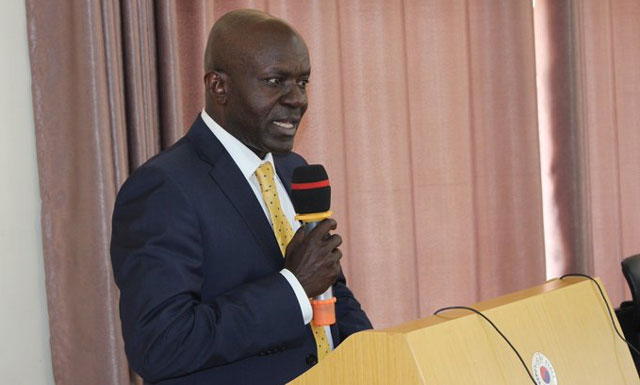
Kampala, Uganda | THE INDEPENDENT | The Education and Sports Ministry will struggle to implement the planned national roll out of the lower secondary curriculum unless required funding is secured.
Only Shillings 10.3 billion out of the required Shillings 40 billion for the curriculum implementation has been released by the Finance Ministry, a source told URN, indicating the Education and Sports Ministry is struggling without funds needed to implement the planned national roll out of the lower secondary curriculum.
Another highly placed official in the Ministry however told URN that even without funds, top Ministry officials are determined to have the curriculum implemented at whatever cost.
He added that due to the lack of funds, schools that get the capitation grant under Universal Secondary Education-USE are likely to suffer.
“The curriculum is going to be implemented whether there is money or not. So, all schools are likely to be forced to get money to ensure implementation of the curriculum one way or another. For USE schools, money from the capitation grant is likely to be used for senior ones to ensure that instructional materials such as books are bought,” he said.
However, the Education Ministry Permanent Secretary Alex Kakooza says implementation of a curriculum is a long process that takes a lot of time and requires a huge sum of money. He says the money that they have so far received is enough for the start.
When asked where the ministry intends to get more funding for the curriculum implementation, Kakooza said they will get money when they need it.
“This is not the first time that we have tried to implement this curriculum. Due to delays we have even lost funding from education partners that were willing to support us, ” Kakooza said, adding that “This time round we have taken the first step and begun training of teachers. When we need more funds, we shall go back and ask for more where we got what we have now.”
In a ministerial response to Parliamentarians who opted to halt the roll out last week, the ministry said government is ready and committed to rolling out the curriculum. “Government is ready and committed to roll out the programme. This is seen by the colossal amount of money which has been injected in this process since 2008,” the statement said.
Difficult roll out
The roll out of the curriculum consists of two stages. Phase one is supposed to be implemented by the National Curriculum Development Center and the other by the Education and Sports Ministry.
The first phase includes building initial capacity by training teachers over a 21 day period at intervals of 7 days, developing materials like text books and mentoring of teachers. It also provides for a trial run in 20 schools from different parts of the country. The trial run would inform changes in the curriculum before it is rolled out country wide during the second phase of implementation.
The second phase would be overseen by the department of the Secondary Education and the Teacher Instructor, Education and Training –TIET. At this phase, the ministry would actualize what NCDC had set up in phase I by setting up a support mechanism for all teachers in the country. According to the plan, the education ministry is supposed to set up resource centers that will used to carryout continuous training related to the curriculum at the 29 regional curriculum training institutions.
The ministry plans to deploy Master trainers at the regional curriculum training institutions to follow up on the trained teachers for two years. The trainers will also carry out regular visits to different schools to see how the curriculum is being implemented. TIET will supervise teaching institutions-national teachers colleges and universities on the other hand to make sure that all the teachers are trained in the new assessment model and methodology. The ministry will also procure and provide instructional materials for all schools and prepare for complete roll out of the curriculum by the end of 2021-the second year of implementation.
They would also prepare for the first national assessment of learners that is scheduled to take place in 2022 when the first lot of learners is in S3. The assessment will be carried out by the Directorate of Industrial Training. At the end of 2023, NCD will then carry out a review of the curriculum for necessary improvements. One of the areas to be considered during the review is supposed to the performance of learners at both Uganda National Examinations Board assessments and the vocational skills.
However, due to funding gaps, officials at the Education Ministry that URN spoke to say they are skeptical about the implementation of the roll out plan. They say that only the first phase, which is currently taking place, might see the light of day. A source at the Ministry that preferred to remain anonymous because of the sensitivity of the matter, said they are not ready for the implementation of the curriculum.
“During this phase, all the money was given to NCDC. After the five day national training, I don’t think they have a lot of money left for the second phase and yet the money we were given was supposed to work during the 2020/2021 financial year. As we stand today, we don’t have money to implement the curriculum in 2021,”the source said.
The sources said they may not follow the plan due to funding problems. “The system is full of indecision. Things that we had earlier on agreed on look like they might not take place. For this first year, I see a lot of mistakes but maybe we shall catch up in the second year if we get money,” she adds.
******
URN
 The Independent Uganda: You get the Truth we Pay the Price
The Independent Uganda: You get the Truth we Pay the Price


